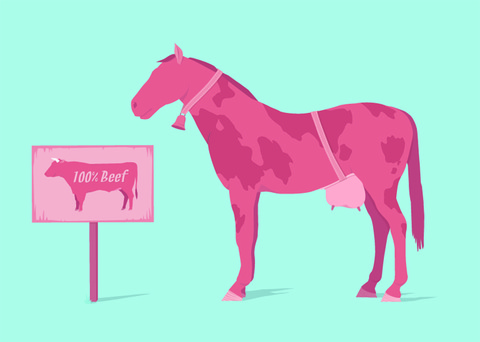Biosensor identifies horse meat adulteration within one hour
12 Sep 2017

Researchers at the University of Madrid have developed an electrochemical biosensor designed to detect the adulteration of horse meat in beef within one hour.
According to the researchers, the device is able to recognise a DNA fragment virtually unchanged in the 4,500-plus mitochondrial genomes of horses sequenced and absent in other mammalian species.
"Thus, it is possible to identify selectively and without false positives any type of horse meat, regardless of race," said Francisco Javier Gallego, a researcher in genetics at the university.
The biosensor is designed to discriminate between beef meat unadulterated and adulterated with only 0.5% (w/w) of horse meat within one hour and with “statistically significant” differences, the researchers said.
José Pingarrón, a professor in analytical chemistry at the university, added: "In addition to moving to the identification of other mammalian DNAs, this methodology could be applied for both the detection of adulterations involving other animal meats and for screening purposes to identify all animal species present in a meat.”
A full account of the research has been published in the journal Analytical Chemistry.
Readers' Comments
There are no comments on this article, leave a comment below to have your say
Have Your Say
The comments have closed for this article

